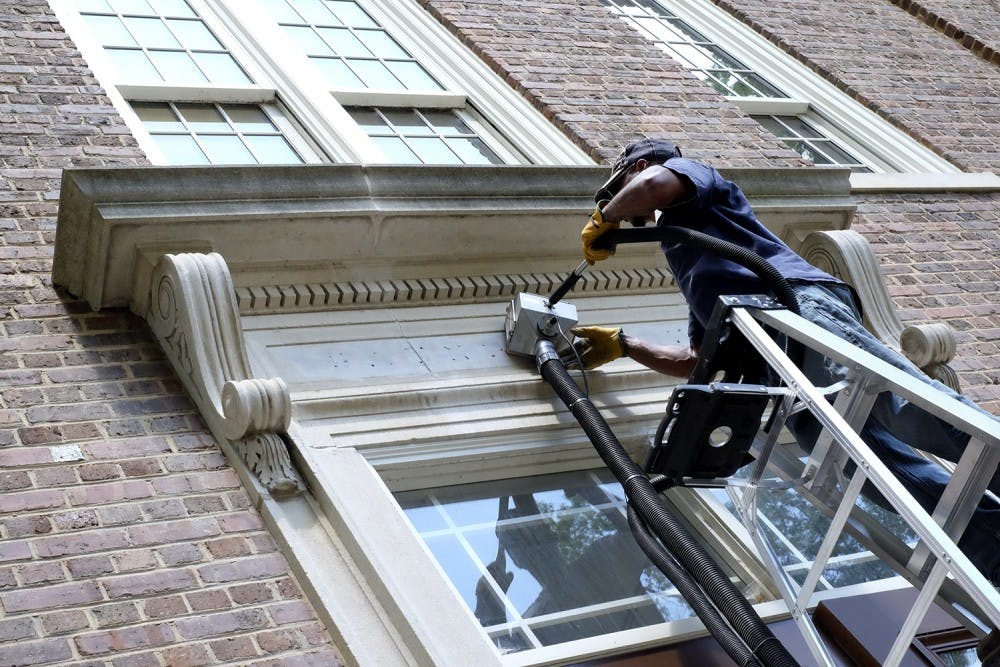In 2015, the BOT unanimously voted to implement the 16-year freeze on renaming buildings, in addition to voting to change “Saunders Hall” — named for former Ku Klux Klan leader and UNC graduate William L. Saunders — to “Carolina Hall.”
According to a 2015 article by Carolina Alumni Review, the Board put the moratorium into place to “allow the University time to develop new education initiatives and evaluate their effectiveness.”
Over the years, the BOT has received pressure from students and other members of the Carolina community to address places on campus that are currently named after white supremacists.
In February, around 450 faculty, staff and students petitioned the board to end the moratorium, which Guskiewicz later shared with Stevens.
Recent conversations around racial injustice and the Black Lives Matter movement have brought students' efforts to end the moratorium to the forefront of changes that some in the Carolina community hope to see on UNC’s campus. Michael Rashaad Galloway, a 2017 UNC graduate, started a petition Monday to repeal the 16-year freeze, which at the time of publication had nearly 9,000 signatures.
The meeting Wednesday began with remarks from Guskiewicz, who said the University is committed to redoubling diversity efforts with a greater sense of urgency and purpose.
“Systemic racism is part of institutions across our country,” Guskiewicz said. “And we have been challenged this year in Chapel Hill — over the years, that our faculty, staff and students have pushed to make UNC better for decades, and as have you, members of our board. But it’s clear that we’ve moved too slowly at times.”
During the meeting, Student Body President Reeves Moseley addressed the petition Galloway started.
“In regard to public pressure, that's rising by the minute, and the fear is if we don’t act on this now, that we will be seen as complicit in the perpetuation of allowing the moratorium to exist,” Moseley said. “So I think we don't have time to not act on it now.”
Charles Duckett, who was on the BOT when the 2015 moratorium was put into place, stated that addressing concerns is important to ensuring UNC remains an inclusive space.
“This place is a welcoming place, we need to be welcoming, welcoming to others,” Duckett said. “We need to be the best public university in the world and part of this is, what are we celebrating with these names? How long do these names really matter?”
Trustees John Preyer and Allie Ray McCullen, who later voted against the motion to repeal the moratorium, expressed concerns about making the decision over Zoom as opposed to in person.
To get the day's news and headlines in your inbox each morning, sign up for our email newsletters.
“I feel that we are rushing to do something, as opposed to taking the proper amount of time to get it right, as opposed to try and do something in a way that is not sort of giving due justice to what we want to do here and do it the right way,” Preyer stated.
McCullen also said that the Board should be cautious of acting every time they hear of potential student protests, or the University would let “the prisoners run the prison.” McCullen later apologized for his comment.
Trustee David Boliek, who put into place the motion to repeal the moratorium, said lifting the 16-year freeze required “immediacy,” and any further actions would call for “high fidelity discussion.”
Duckett echoed this sentiment.
“We need to stop celebrating people that block the progress of this state and celebrate some people that helped this University advance this state,” Duckett said.
Trustees Kelly Matthews Hopkins and Jeff Brown also posed questions about how the implementation of the education and curation of UNC’s history will be addressed moving forward. Former Chancellor Carol Folt had previously established a History Task Force in 2015 to “evaluate published information about Carolina’s buildings, monuments and memorials and make specific recommendations for improvement.”
In 2019, Guskiewicz announced a plan for the newly-created Commission on History, Race and a Way Forward to build on the original work of the task force. Guskiewicz stated at the BOT meeting that the commission will provide recommendations back to him and the Board moving forward.
“I am confident and I will work alongside them to ensure that their work is done in a meaningful way,” Guskiewicz said.
Guskiewicz and Chairperson Richard Stevens both emphasized that repealing the moratorium was only a first step to other changes needed to address UNC’s racist history on campus.
“This puts us on a road to take meaningful actions, actions that we've talked about on many occasions,” Guskiewicz said. “And I think this is a really important next step.”
@MaydhaDevarajan
university@dailytarheel.com




